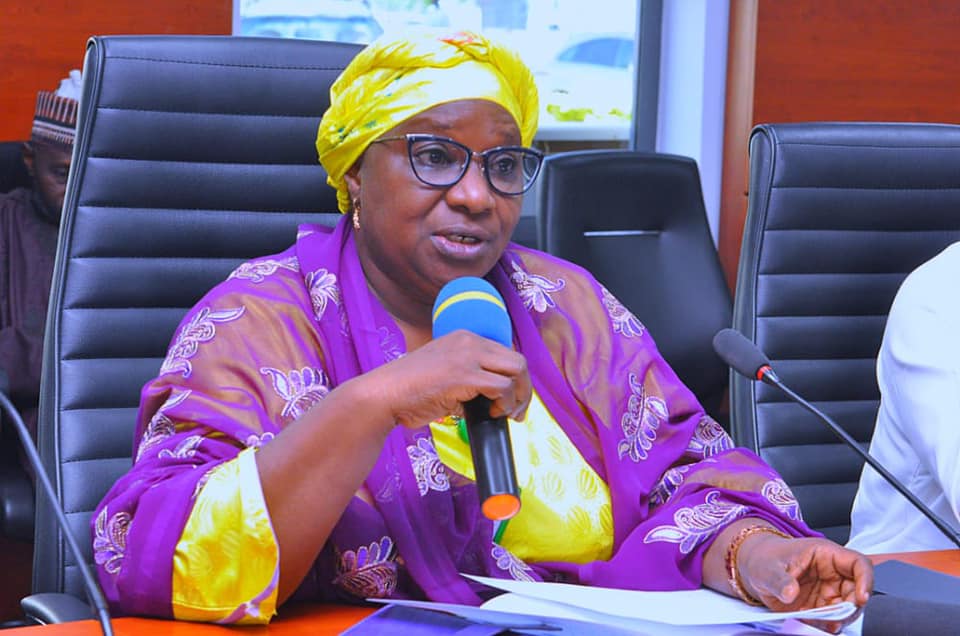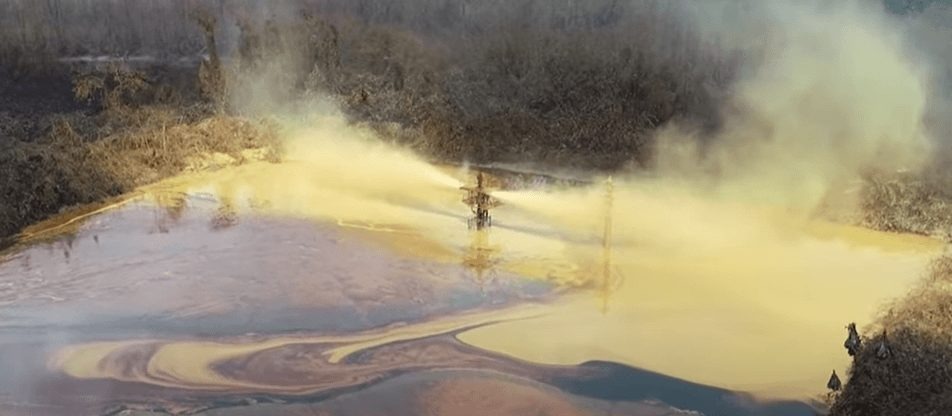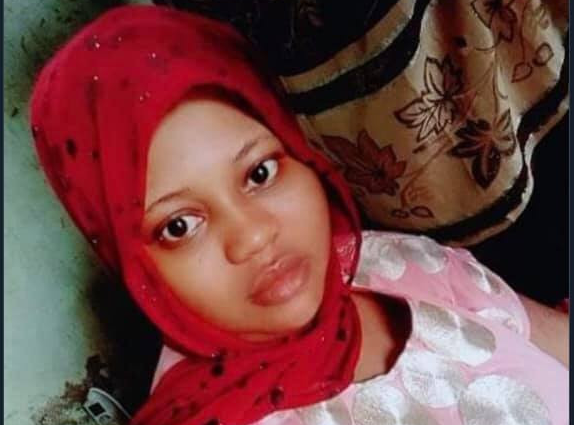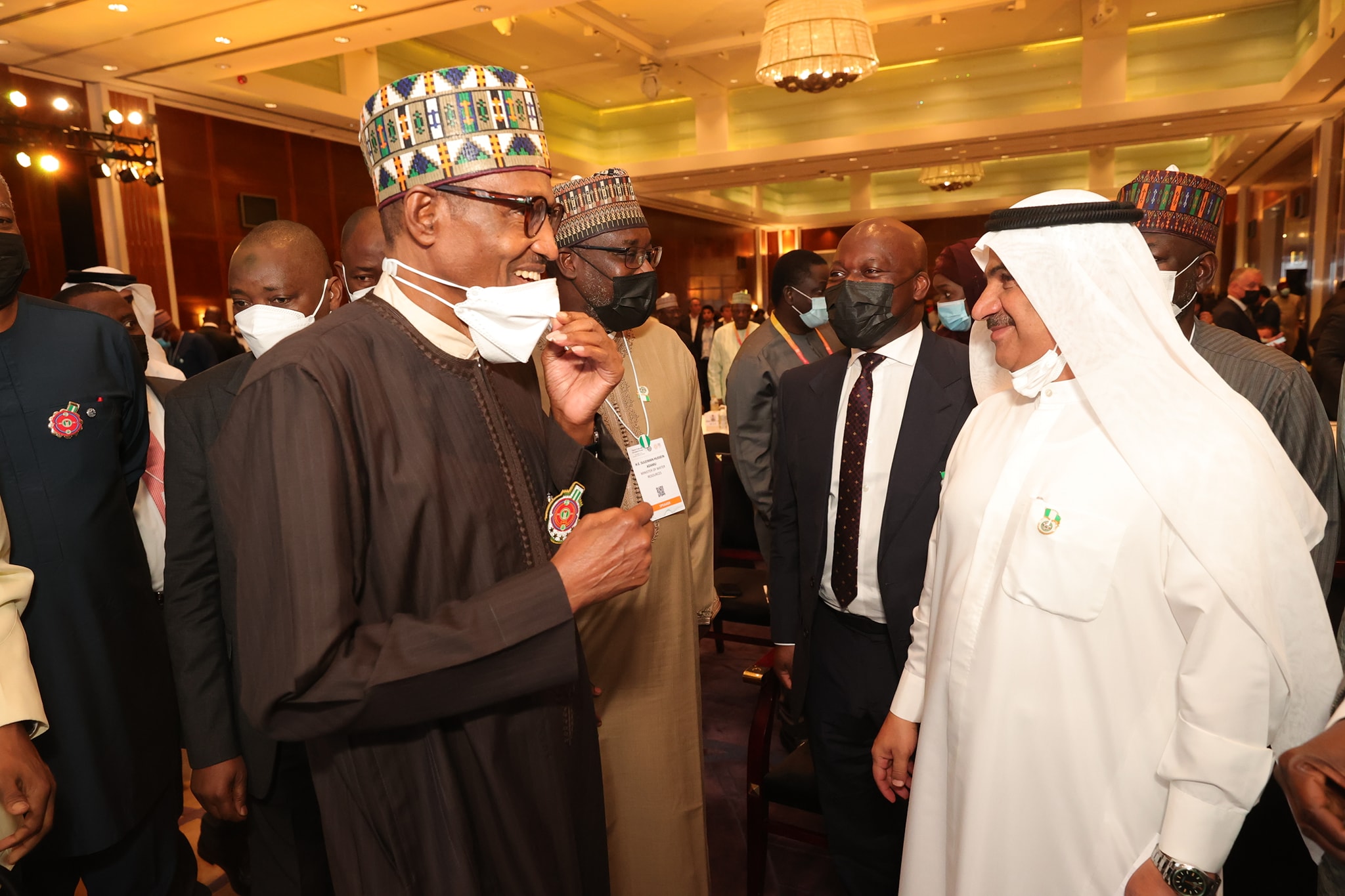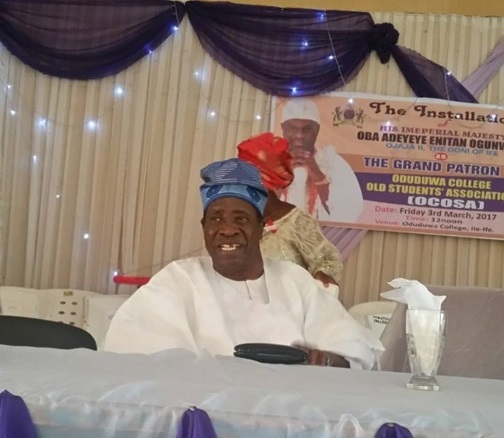Hadiza Balarabe
Hadiza Balarabe, the deputy governor of Kaduna state, is the first female elected deputy governor in north-west Nigeria. In this interview, she speaks about her partnership with Nasir el-Rufai, the governor, the achievements and the challenges ahead as the administration marches towards 2023, and about the man, el-Rufai.
What has changed since November 2, 2018 when el-Rufai chose you as his running mate?
Certainly, it’s a date I won’t ever forget. But I think the governor had probably made up his mind long before the 2nd of November, 2018. We only filled and endorsed the nomination forms on the 2nd of November and submitted to the party, about a day to the closing date. I think what has changed from then is my perception of life. In all honesty, I never for once dreamed about this; absolutely nothing prepared me for it. The possibility of me being the deputy to Mallam Nasir el-Rufai was not ever what I have imagined, not even in my dreams.
However, I am grateful to God for the opportunity. And this has strengthened my belief in the saying that what will be will be, because what God has destined for you will surely come to pass. I am forever grateful to Allah for the opportunity to serve my dear people of Kaduna state. It’s an appointment that I will never take for granted. I have learned more than ever before that there is reward for hard work and integrity. I am now more than ever determined and more committed to put in my best in the service of the people of Kaduna state. I remain eternally grateful to Mallam Nasir el-Rufai for considering me worthy.
Advertisement
Are you saying that he didn’t give you a hint?
Absolutely nothing. As usual, I was just busy doing my work as a public health physician, which by the way I was enjoying. My plans after my tenure at the Primary Health Agency was to set up or work with an NGO or any other organisation, but God had his own plans.
Did he call you to make the offer?
Advertisement
Mallam Nasir el-Rufai had on several occasions narrated the events of how I became his running mate. I vividly remember him sending for me, which wasn’t new, considering the renovation and rehabilitation of the primary health centres that the agency was overseeing. Truly, I thought that the discussion would only be on our assignment, but along the line, he asked me why I wasn’t taking any interest in politics. Of course, I had no answer. He advised that I take an interest, because it will be good for me in the future. And that was it. On my part, I just continued my work at the agency. That’s the closet discussion about my likelihood of joining him that we had.
One time governor of Anambra, Chukwuemeka Ezeife, once described deputy governors as spare tyres. You’ve been acting governor of Kaduna state several times, represented Kaduna recently at the APC governors meeting, among other activities. Do your colleagues from other states envy you considering the relationship with your principal?
When we meet, we just generally talk about the issue at hand. We don’t delve into what’s happening to anyone. His excellency, Mallam Nasir el-Rufai, has said on one or two occasions that in Kaduna state, we are partners; we are a team, and we will always function as a team. I remain eternally grateful to Mallam Nasir el-Rufai for being such a fantastic human being. I remember vividly the sentiments he expressed in the two books that he gave me when I first assumed duty, which he also graciously autographed. One of the books was the ‘Accidental Public Servant’ and he wrote, ‘My sister, deputy and partner, Dr. Hadiza Balarabe, with sincerest regards, best wishes and gratitude for your service, support and sacrifice for Kaduna’. When he gave me the book ‘Becoming’ by Michelle Obama, he wrote ‘For my esteemed partner and deputy, with affection and gratitude for your hard work, dedication and loyalty; hope Michelle’s experience will help’. So, it’s not that I think that he sees me as a partner, but that in reality, he demonstrates that fact. In Kaduna state, under el-Rufai, no deputy governor has been treated as a spare tyre.
I cherish those words and they will forever be dear to my heart. Those words mean a lot to me. I have continued to put in my best ensure that I am not found wanting in any way. He has high regards for me as a person and the office. He is everything rolled into one: an astute administrator, a chartered surveyor, a lawyer, a team leader, a wonderful father, a motivator. I can go on and on.
Advertisement
Was your mother alive to see you become a ‘big woman’?
Even if she was still alive, you know you will always be a child when it comes to your parents. So, I would have remained that little girl to her. Unfortunately, she died in 2009, so she didn’t get the opportunity to witness my election as the deputy governor. But knowing her, she’ll be happy and filled with gratitude to Allah the Almighty, that her dear daughter had risen to the number two position in the state. She will forever acknowledge the faithfulness of Almighty Allah. I pray always that she is in the bosom of the Lord. My stepmother… yes, she also died a Christian. The religious background of my mother, my two step-mothers and my father has helped shape my world view. My father is very liberal. He never tried to convert his two Christian wives. He allowed them to practise their religion. He has a third wife who is a Muslim. That’s my family: Muslim father, two Christian mothers, another Muslim wife and all Muslim children. This has made it possible for us to enjoy the best of both worlds — Sallah and Christmas.
In spite of your position, you have remained yourself — down to earth. What are the factors that motivate you the most?
First, this position hasn’t and I pray it won’t change me, because it is transient. I equally believe that Allah in His mercies gives positions or wealth to test your faith, which once you misuse, you are on your own. So, I try as much as possible to remain myself, while spending my time learning. I’m still learning and getting to understand how things work. It’s very tough, but we will get there. When I got Mallam Nasir el-Rufai’s email informing me of his decision to run with him, I was afraid. My first reaction was ‘I hope this goes well’, because I knew it was going to be a difficult sale — coming from a relatively obscure background, Sanga — a doctor who has never been involved in politics. I didn’t want Mallam to fail because of me. I was a big risk, but that he was ready to take the risk meant he believed in me, that there was something I could offer.
Advertisement
Secondly, I don’t want to fail the people of Kaduna state, who believed in the capacity of the ticket to make a difference in their lives. Considering the position of women, there is just no way I will give some people who have reservations about the capacity of women the opportunity to celebrate. So yes, I don’t want to fail women and girls who see me as a role model. So, very early, I knew I had to work very hard to justify the appointment, so as to leave a record of service that they can always refer to. Mallam el-Rufai has given us unprecedented opportunities to be part of the decision-making process. There is no way I am going to jeopardise that solid support.
My appointment has several dimensions. Like you know, I am from Gwantu, a very small town, but he has made a point that where you come from doesn’t matter, nor should religion matter; that what matters is the commitment to serve, to be fair and just to all. And lastly, there is no way I can afford to fail myself, because I dread failure. Failure haunts me. So, these are the motivations for me to keep putting in everything into the assignment.
Advertisement
So, you strive towards making a difference?
Absolutely. I try as much as possible to put in my very best in everything I do.
Advertisement
Your party, the APC, has made great inroad into zone 3. So much that the APC won five out of the eight LGAS. You must be feeling good because you led the campaign team. What changed?
I think a lot has changed and not only in zone 3, but the whole of Kaduna state. The people can see developments in all spheres. And obviously, they like what they see and hear. These realities helped quite a lot in helping the people vote for the APC. We overwhelmed them with evidence. Before 2015 elections, it was campaign promises, but after that, they wanted concrete evidence. So, we have demonstrated capacity that we can be trusted to deliver, and we have delivered. We are happy that we conducted an election that even the opposition acknowledged was very fair. They won and lost fairly. We ensured a level-playing field and the Kaduna State Independent Electoral Commission, wasn’t scared of doing the right thing. We are happy that the world has come to acknowledge the democratic credentials of Mallam Nasir el-Rufai as opposed to the misinformation and untruths about him.
Advertisement
So, your record of service made the difference?
Yes, it did.
But your winning might create problems moving towards 2023. The APC ticket will be very attractive because many people will want to run. Are you prepared to manage that scenario?
When we get to that bridge, we will cross it; don’t worry.
But you do envisage that problem?
The challenge started with the local government elections. We had several aspirants who wanted to fly our flag across the 23 LGAs. Thankfully, our leader, Mallam Nasir el-Rufai, ensured that it was well managed. He ensured a credible party primary and met one on one with all those who lost. So, we went into the election united. We are confident that we can also manage 2023, by the grace of God.
Medicine and politics, any difference?
Not substantially. Both are about service to humanity. The only difference is the long and vigorous training in medical school because you are going to manage human beings. Again, there are many politicians that have spent years in politics, so much that they also have a good understanding of human behaviour.
Both essentially are about care?
Yes, it’s about care and service to humanity. That’s medicine and politics.
FAs the chairperson of the Kaduna state task force on COVID-19, you provided leadership and held the state when the governor was infected. On a lighter side, how many kilogrammes did you lose because you were also at the borders?
I was at the Katsina border most of the time — Katsina and Abuja borders. Did I take the time to check? I must confess that some of my dresses became slightly loose. But I didn’t take the time to check, because we had a duty to serve humanity. It was a trying period for each and everyone, but we were committed to putting in our best, so we didn’t mind if we lost weight; the survival of our people was paramount. We didn’t want a situation where we would have so many casualties that the health system would not be able to cope with and so our goal was to ensure that we protected the people of Kaduna state. I don’t think anybody minded how strenuous or tedious the exercise was. Our happiness is that we saved lives.
There was criticism of your total lockdown policy at the time. Any regret?
No regrets.
And what if a similar situation arises tomorrow?
I want our dear people to understand that everyone of us swore to an oath, to be fair, to be just, that we are going to protect lives and that oath is not a joke. People were talking about livelihoods, about liberties, but you have to be alive to pursue your business. This is the reason we centred all our efforts towards the protection of lives. We know that once there is life, God will give us that opportunity to go about our daily activities again.
Where are we now with COVID?
COVID-19 is still a big threat. We have experienced the first and second wave. We are presently experiencing the third wave. We have eased the lockdown, but that is not an indication that we are out of the woods. We will continue to encourage people take personal responsibility — to use face masks, observe physical distancing, regularly wash their hands, avoid overcrowded places, etc. We don’t want our collective efforts undone by those who refuse to take personal responsibility for themselves, for their families and for the society at large.
COVID is still very much with us. We have continued to record some cases, but not as much as we recorded during the first and second waves. There are various variants, like the delta variant that was recently discovered. We will continue to appeal to our people to adhere to the guidelines of the FORWARD campaign and we will keep advising people to take personal responsibility until a large percentage of our population are vaccinated. We are yet to get there.
How soon can we achieve herd immunity?
We are trying. I have just been informed that the zero-prevalence rate from a study concluded by the ministry of health was 15%. For us to acquire herd immunity, we must get about 80% of the total population covered. So, we are still a long way from achieving that. We are liaising with the National Primary Health Care Development Agency to get more vaccines to enable us to achieve our target of 40% by 2021, and the rest by 2022. To achieve this, the number of vaccination centres have been increased. Meanwhile, the Kaduna state government had ordered that by 31st of October, every public servant must show evidence of vaccination before being allowed into any government office. And for those doing business with the state government, they have up till the 31st of December to show evidence of vaccination, otherwise they won’t have access to government premises. So, we are encouraging people to get vaccinated.
What is your assessment of the primary health care under the one roof (PHCUOR) policy? You were there as the executive secretary. Has the integration addressed fundamental issues such as inadequate medical personnel, poor referral, the availability of drugs and use of technology to get drugs to hard-to-reach places?
In 2016, there was a PHCUOR score card which ranked Kaduna state 15 out of the 36 states. But before I left the agency, we changed the story. We were able to move to the top five states in the country. Presently, the Kaduna state government is building a new complex for the agency to create that enabling work environment to boost productivity. We have fundamentally addressed other issues identified that were holding us back. The objective is to have same standards for the PHCs across the state.
We have the legislation; in fact, it was reviewed some months ago, because there were issues within the legislation which continued to affect our score. So, I would say that we have made significant progress. In fact, we have even gone beyond the national level demands. We have moved the tuberculosis, malaria control programmes to the primary health care board.
Have you finished the 255 PHCs under the programme and taking up another 255?
Under the ward health system, which Nigeria adopted in 2001, there is a guideline on where facilities should be sited. There is supposed to be one primary health care centre, which is the apex primary health care facility within the ward, with six primary health care clinics at equidistant areas within the ward, which will reduce geographical access for people accessing services. In Kaduna, what we have done is to take one primary health care centre as the apex facility and put it right to ensure integrated services provision that they can take referrals from all the primary health care clinics within the ward. So now we have done an assessment of all the other primary health care clinics and we found that they need some upgrades. Thankfully, we’ve finished with the centres; we’re taking at least one primary health care clinic and we will move on until we complete them. The clinics are not as big as the centres, so we hope and pray that we would get adequate funding so we can finish them.
The big one, the urban renewal programme for Kaduna, Kafanchan, Zaria, is beyond what people imagined. Are you satisfied with the progress of work?
Absolutely, yes. Recently, there was a little tweaking of the leadership of the various councils. Initially, I was at the human capital development council and the procurement council; now I’m chairing the infrastructure council and I’m in a position to assert that were it not for the devastating impact of COVID-19 on economic activities, many more projects would have been delivered. And we wouldn’t have had to step down some other projects. Overall, we are extremely happy with the execution of the various projects.
The people of Kaduna state deserve these world class projects — not just roads, but roads with pedestrian walkways, traffic lights, duct pipes for telecommunications and other relevant infrastructure that will promote growth and development of the state. We intend, by the grace of God, to finish them. As his excellency, Mallam Nasir, will say, we intend to finish as strong as we started.
Are you sure these road projects will be completed within the lifespan of this administration?
Yes, we are certainly sure of that.
Does it worry you, especially when you take decisions that you are convinced is in the best interest of the people, that people want omelette but they don’t want the eggs broken?
I must confess that it worries me sometimes because every decision is debated, and the majority decision is what gets implemented. We are very conscious of the fact that we are all answerable for the decisions that we take on behalf of the people. Leadership is a trust, and we are very much aware of this fact.
Is there any area the el-Rufai administration believes it hasn’t done well?
Yes, we’ve done quite a lot and in so many areas. The one area I think we want to do more is in community engagement; to close gaps for mischief makers to misinterpret government policies. This is why we have developed a community engagement policy and strategy. It will help us change the narrative. We have been doing this with the budget; we do radio interviews but it can never be too much. Our agenda is ‘Putting People First’. Nothing will be too much. So, expect more community engagement activities –stakeholders’ and town hall meetings — because they are very critical to us.
The federal government has indicated its intention to embark on the rationalisation of the public service. Does that in any way make the Kaduna government feel vindicated?
Maybe. But the Kaduna state government doesn’t seek for vindication for its policies. We do things that we feel are right and we do things that we believe are for the greater good of the people. So, whether the federal government does it or not, we have done what is right for Kaduna state. And we are seeing the results, in terms of quality service delivery. Kaduna state is uniquely Kaduna state, so, we take very difficult decisions, which is the hallmark of good governance.
We believe in doing what is right for the people. And that is why they elected us. The difference between us and others is the willingness to take very difficult decisions. Before us, there were reports on the need to look at the quality of our teachers, but the needful wasn’t done. And Kaduna state children paid the price. We are not heartless. We want our children to be global citizens and a solid education is the starting point.
There is absolutely nothing that happens in the Kaduna state government that is not backed by evidence. We don’t just wake up one day and take out people from the service without justification. We take very hard look at issues, the benefits to the generality of the people. So, whatever the issue, it is backed by evidence. We are not heartless. We are very compassionate people, but when the need arises, we administer the necessary injunction.
What will be the legacy of the el-Rufai administration: policy or projects?
Both. I think we’re given a very good account on both fronts. With the reforms that we have put in place and the policies that are on ground, I’m very sure about that. We have changed Kaduna state. People will think twice before building on public land or without building permit. Public servants understand that they must continuously improve themselves; the era of entering the public service with school certificate is gone, the minimum entry requirement is OND.
It’s not boasting when we say we have restored the confidence of the Kaduna state people in government. Now, they know that government can work, that it’s left to them to entrust it into the hands of committed leadership, like Mallam has demonstrated. People are paying their taxes, because they know that the reform has criminalised cash collection and that monies are put to good use. We have increased school enrolment, because of the reform of the educational sector and this is because Mallam believes that the children of the poor should have access to education. We’re providing free health services and ensuring that pregnant women deliver in a safe environment, well equipped and with the requisite manpower.
Let’s talk about el-Rufai. What are other sides you have seen from working with him?
This is a herculean task. What area do you want me to talk about and what do I leave out? Some people’s perceptions of Mallam Nasir el-Rufai have been framed by what they read or hear, from those who have issues to grind with him. Only a few people will be honest in their assessment of someone who in the course of his assignment as a minister had to bring down houses built on land belonging to public schools; that distorted the masterplan.
But I know for certain that el-Rufai is an authentic leader. He is genuine, and he is confident. This is a fact that can’t be denied. Everyone, almost everyone, knows that he applies knowledge in administering the state; that no policy is implemented that is not backed by evidence, knowledge and experience. He is a fantastic human being. Thoughtful, inspiring, he challenges everyone around him to be the very best version of himself or herself.
His motto is you should be better than what you were yesterday. And he will give you all the necessary support, the motivation. He is our cheerleader, which many people will find surprising. It’s public knowledge that he is very bold, courageous and he’s a very, very blunt, which is why he doesn’t shy away from taking very difficult and challenging decisions. He is not rash. He is patient, extremely patient.
He’s a stickler for justice; he abhors injustice. He’s a fighter and most importantly, he’s an advocate for equal opportunities for men and women. Like you said, he cries when he has to, but I want to let you know that it takes strength to cry. He is emotional, just like every other person because he is a human being. What people keep forgetting is that el-Rufai is also a human being. He has emotions too; I admire him because he can express his emotions.
Is el-Rufai arrogant?
No! When I say no, it’s a no. You don’t have to push further, asking me why I said no. He is not; it’s just the machinations of some people because he believes that the government should work for the generality of the people. That’s not being arrogant. But they must give him a bad name to justify their negative campaigns against him.
Does he have this ‘I know it all’ attitude or does he seek your advice?
That’s a very funny question and contrary to the reality of his administration. You know, when I hear people talk about his so called ‘I know it all’ attitude, I usually ask myself which el-Rufai they are talking about? Because that’s not the el-Rufai that I know. You are at liberty to make inquiries from the members of the Kaduna state executive council. El-Rufai is an excellent team player, a very good listener. Of course, he has his opinions but he doesn’t force them down our throats, and he is happy to have them subjected to debates. And at the end of the day, he yields to superior arguments. So, how can people describe such a man as having an ‘I know it all’ attitude? He is not autocratic; he gives everybody the chance to voice out his or her opinion before a decision is taken. For instance, he threw the idea of the policy councils open for debate. We signed off after a robust debate because we saw the wisdom, the reasons why constituting the councils was the way to go. And being a confident man who trusts his appointees, he doesn’t chair any of them. A control freak won’t go that way. That’s Mallam for you.
Between you and el-Rufai, who is more pro-women?
This is not a competition so I’m not sure that I’ll be able to do an assessment of myself, but I can tell you without hesitation about Mallam el-Rufai. Mallam holds the distinction, a record for being pro-women, in words and actions. There is no leader today that compares to him when it comes to women rights. He is the true example of a ‘He for She’ that we have all been talking about. His is beyond just rhetoric when it comes to opportunities for women, including their welfare. He has walked his talk, he has promoted, and made conscious efforts to get women into politics. You would have noticed that this time around, more women sought positions in the local governments, which wasn’t the case before now. And this is because of his belief in the capacities of women. He is far ahead of his contemporaries on the issues concerning women. It goes beyond appointments; it is about fundamental policies. You can’t find a better advocate for women and girls rights than Mallam.
How revolutionary are these policies?
Yes, but initially the abolition of the school fees in our secondary schools was for female students, but since 2020 it was extended to include boys. These policies have drastically increased the enrolment of girls in our schools. I’m happy to let you know that the recent survey conducted by the Ministry of Education and the Bureau of Statistics, revealed a dramatic narrowing of the gap between girls and boys to about 51 to 49%. This is very encouraging for us in view of the relentless campaign to encourage girls to enrol and get education before other things, because of the benefits, especially as women make up 50% of the world’s population. The implication of not educating girls is better left imagined. We can’t afford to suffer the consequences.
Statistics from the ministry of human services and social development have equally shown that the Kaduna state women empowerment fund, which the Kaduna state government provided the N200 million seed money, is making the desired impact. The first tranche and the second tranche have been disbursed to women with micro, small, and medium enterprises, registered as cooperatives or individuals, to either start up or expand their businesses. So, from whatever angle you look at, we owe him a debt of gratitude. But the Mallam that I know would not want to hear that from us, because he is doing it out of the beauty of his heart. We also have a scholarship programme, and we have tried as much as possible to encourage girls and women to study courses that will be relevant for Kaduna state today and tomorrow. We have developed the Kaduna state development plan, which captures our desire and vision. The Child Welfare Act was recently amended and the amendment to the Penal Code Law 2020 prescribes castration/death for anyone who commits rape of a child below age 14. It is a heinous crime. Why should it happen? These policies are unprecedented. We will continue to appreciate his excellency for his efforts.
Are women of Kaduna state a threat to the men?
It depends on how they want to take it, but we will prefer that they see us as partners. We are not a threat to them. But when they see us as such, then the more we will be to them in their subconscious.
And you are winning?
I don’t know if we are winning, but I just want everybody to look at the whole scenario and try to situate himself or herself in that situation. In one word, humanity is winning. What we want is development for the state and for the country at large. So, it’s important we work as partners and I want men to have this at the back of their minds, that it doesn’t matter who takes the glory, as long as we achieve the result. l hope the men are listening to me.
You have recorded a number of firsts — first elected female deputy governor in the north-west and first deputy governor to present a budget to the Kaduna house of assembly. On the flip side, what is your lowest moment either as deputy or as acting governor?
Low moments for me are the energy to push on. I don’t have any and I don’t intend to have any.
Add a comment
